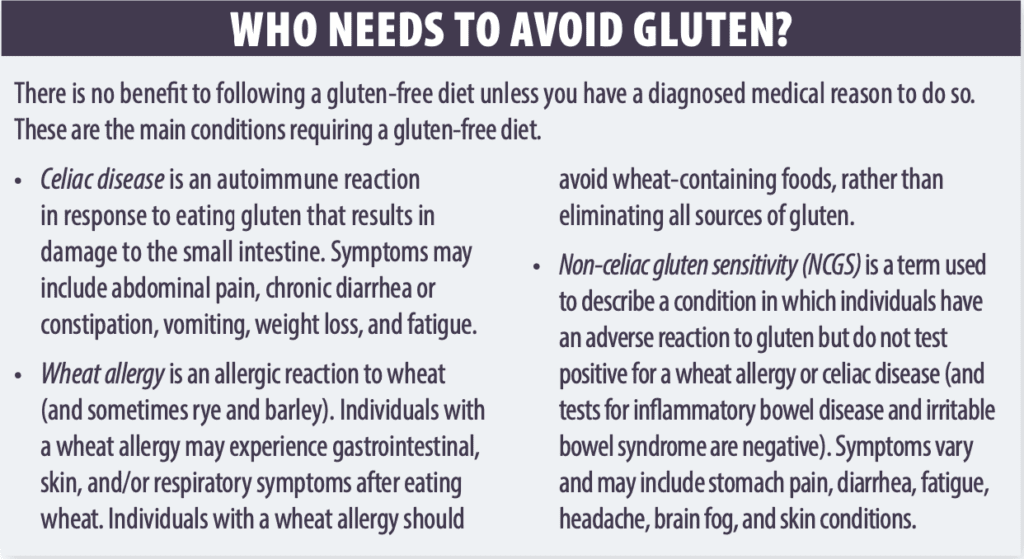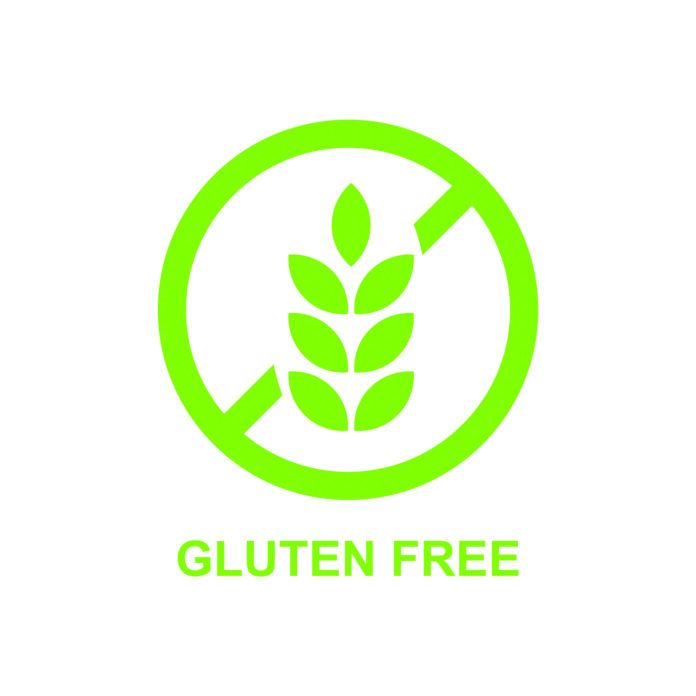Many restaurants now offer gluten-free menu options and grocery stores have gluten free offerings throughout. But is “going gluten-free” the right choice for you?
Gluten 101. Gluten is a protein found in wheat, rye, and barley. Its ability to stretch allows breads to rise.
A gluten-free diet eliminates all sources of gluten, including whole foods, food products, and medications containing gluten. Despite its popularity, eliminating gluten is only essential for individuals with celiac disease, wheat allergy, and non-celiac gluten sensitivity (see Who Needs to Avoid Gluten?).
If you have digestive problems you think may be related to gluten, John Leung, MD, an allergist, gastroenterologist, and director for the Center for Food Related Diseases at Tufts Medical Center, cautions against eliminating foods prior to seeing a medical professional. “There are a lot of diseases that can cause gastrointestinal distress,” he says. “It’s imperative that you consult a medical professional before putting yourself on a diet.”
➧ Higher intake of ultraprocessed foods: Most components of a healthy dietary pattern (fruits, vegetables, beans, lentils, nuts, seeds, fish/seafood, eggs, low fat and fat free dairy products, poultry, and unprocessed lean red meats) are naturally gluten free. There are many whole grains that do not contain gluten, including amaranth, buckwheat, most oats, millet, quinoa, rice, sorghum, and teff. Unfortunately, the explosion of gluten-free packaged foods has made it easy to access ultraprocessed options (see Page 4 for more on why you should limit ultraprocessed foods).
➧ Lower intake of fiber. Diets high in fiber have been associated with desirable health outcomes, including lower risk for cardiovascular disease, type 2 diabetes, diverticulitis, and colorectal cancer. Eating naturally fiber-rich foods may also help avoid weight gain by keeping you feeling full longer. Consuming a lot of ultraprocessed refined-flour products (including the many products now made with refined gluten-free flours) in place of whole grain options makes it difficult to get the recommended amount of fiber (around 25 grams a day, depending on age and sex).
➧ Potential nutrient inadequacies. Some research has suggested that individuals following a gluten-free diet for long periods of time are at greater risk of falling short on some nutrients, particularly fiber, folate, iron, and niacin. That said, there have not been reports of widespread nutrient deficiencies in people following gluten-free diets.
➧ Possible psychological and social impacts. “Some people find it more difficult to eat out and socialize on a gluten-free diet, which can increase social isolation,” says Leung. “Additionally, some people on restrictive diets develop food aversions.”
➧ High price. Numerous studies have found that gluten-free products are significantly more expensive than their gluten-containing versions.

If you don’t have a medical reason to avoid gluten, there is no real benefit to doing so. If you must avoid gluten, choose plenty of nutrient- and fiber-rich plant foods, including fruits and vegetables, beans, lentils, nuts, seeds, and minimally processed, gluten-free whole grains, and be sure you are not relying too heavily on ultraprocessed gluten-free foods.





















